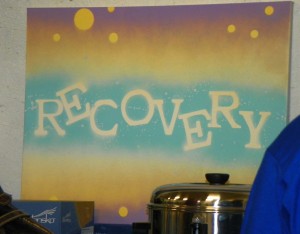DOVER – Today, the Division of Public Health (DPH) announced the launch of a life-skills pilot program at eight middle schools across Delaware to teach students the skills they need to prevent addiction, promote positive decision-making and reduce violence.
DPH is partnering with the Department of Education to bring the Botvin LifeSkills® curriculum to the classroom. The Botvin LifeSkills® Training Program (LST) is a comprehensive, evidence-based program, which provides adolescents and young teens with the con¬fidence and skills necessary to successfully handle challenging situations.
“Adolescents tend to try substances due to peer pressure, family problems, or low self-esteem, and can easily become addicted,” said DPH Director Dr. Karyl Rattay. “We wanted to provide teachers with the resources and supports this curriculum offers, to integrate life-skills building and substance use prevention in schools while also helping them to achieve their health education requirements.”
“The impact of substance use has far-reaching effects on our students, including hampering their ability to learn and interfering with their ability to function both in school and at home,” said Department of Education Secretary Susan Bunting. “It is critical that we reach students as early as possible and equip them with good decision-making skills, so that they stay on a path that will lead them to achieve their full potential.”
The pilot program kicked off earlier this week with a train-the-trainer session for 10 teachers who will be using the curriculum. Teachers learned interventions to address the social and psychological factors that lead to experimentation with drugs and other undesirable behaviors. Topics covered included self-image, decision-making, smoking, alcohol, marijuana, advertising, violence and the media, coping with anxiety, coping with anger, communication skills, social skills, assertiveness, and resolving conflicts. The LifeSkills® curriculum must be taught by a certified Botvin trainer.
“Our pre-teens need the confidence, social skills and self-esteem to reject peer pressure and lower their risk for addiction and violence,” said Representative Ruth Briggs King, who welcomed the teachers to the training session held at the University of Delaware Kent County Cooperative Extension office in Dover. “One way to help communities is to initiate prevention, and the school setting is ideal. Research suggests that universal lessons to all children – not only to those at higher risk – strengthen children’s self-esteem, decision-making and communication skills.” DPH paid for the train-the-trainer course and curriculum materials.
DPH selected middle schools in the Capital, Indian River, Red Clay, and Seaford school districts because they are located in areas with high overdose numbers. Through games, discussion, role-playing, and other exercises, students practice refusing drugs, communicating with peers and adults, making choices in problem situations, and confronting peer pressure. Materials range from worksheets and posters, to videos and online content. Schools will decide individually how to best incorporate the 15 class sessions that run 30 to 45 minutes.
“Capital School District is committed to meeting the needs of the whole child. Health education and skill-building so our students can say ‘no’ to heroin, prescription painkillers, and other addictive drugs is critical to this mission,” said Michael Saylor, Supervisor of School Success Planning for Capital School District. “We greatly appreciate this level of partnership and support from the Division of Public Health.”
Training will be implemented in the 2017-2018 school year, beginning with sixth-graders and reaching approximately 2,000 students. Students will complete pre- and post-tests, which Botvin will analyze and summarize for DPH.
Like the nation, Delaware is experiencing an epidemic of addiction to opioids, illegal drugs and alcohol. Overdose deaths in Delaware climbed from 172 in 2012 to 228 in 2015, and then jumped to 308 deaths in 2016. First responders administered the life-saving medication naloxone more than 1,535 in 2016. Parents searching for resources and information regarding how to talk to their children about alcohol and drug use can visit HelpIsHereDE.com.
According to the U.S. Surgeon General Report on Alcohol, Drugs and Health, children who use alcohol before age 15 are four times more likely to become addicted to alcohol at some time in their lives, compared to those who have their first drink at age 20 or older. Nearly 70 percent of children who try an illicit drug before age 13 develop a substance use disorder within seven years. Substance use disorders among children are associated with deteriorating relationships, poor school performance, loss of employment, diminished mental health, and sickness and death from motor vehicle crashes, poisonings, violence, and accidents.
Schools offering the Botvin LifeSkills® curriculum are:
- Red Clay School District: Brandywine Springs Middle School
- Capital School District: William Henry and Central middle schools
- Seaford School District: Seaford Middle School
- Indian River School District: Selbyville, Millsboro, and Georgetown middle schools and the Delaware School of the Arts
About Botvin LifeSkills® Training
Botvin LifeSkills® Training (LST) is a highly acclaimed, evidence-based substance abuse and violence prevention program used in schools and communities. LST has been extensively tested and proven to reduce tobacco, alcohol, opioid and illicit drug use by as much as 80 percent. Long-term follow-up studies also show that it produces prevention effects that are durable and long-lasting. Visit www.lifeskillstraining.com for more information.
A person who is deaf, hard-of-hearing, deaf-blind or speech-disabled can call the DPH phone number above by using TTY services. Dial 7-1-1 or 800-232-5460 to type your conversation to a relay operator, who reads your conversation to a hearing person at DPH. The relay operator types the hearing person’s spoken words back to the TTY user. To learn more about TTY availability in Delaware, visit http://delawarerelay.com.
Delaware Health and Social Services is committed to improving the quality of the lives of Delaware’s citizens by promoting health and well-being, fostering self-sufficiency, and protecting vulnerable populations. DPH, a division of DHSS, urges Delawareans to make healthier choices with the 5-2-1 Almost None campaign: eat 5 or more fruits and vegetables each day, have no more than 2 hours of recreational screen time each day (includes TV, computer, gaming), get 1 or more hours of physical activity each day, and drink almost no sugary beverages.
